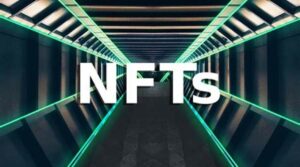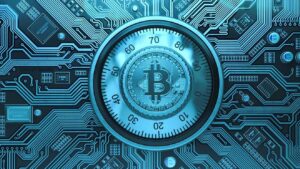I went to an NFT event the other week. I learned a great deal from knowledgeable people about the NFT marketplace, and blockchain.
Initial Opinion
 Before I went to this event, my opinion about Crypto (a giant Ponzi scheme) and NFTs were the same. You’re buying a piece of digital something (a non-tangible item) with no rights and hope someone else sees value later. This transaction was based on blockchain. As such, the transaction was secured.
Before I went to this event, my opinion about Crypto (a giant Ponzi scheme) and NFTs were the same. You’re buying a piece of digital something (a non-tangible item) with no rights and hope someone else sees value later. This transaction was based on blockchain. As such, the transaction was secured.
But was it secure? I don’t think so. But we’ll get back to this.
My education
So, after talking for two hours with different proponents of NFT’s I’ve come away with a slightly unique perspective.
Yes, there is a part of the NFT marketspace, where my original thinking, dislike, and aversion to ever entering a NFT transaction didn’t change. But I now understand that some of these NFT companies are buying tangible items.
Let us use as an example baseball cards. To buyers of baseball cards, they contain excellent value and there is a real and vibrant market for the buying and selling of baseball cards. Baseball cards can have extraordinarily little value while one card in August of 2021 sold for $6.06M (the 1909 Honus Wagner). That ain’t peanuts and crackerjacks…
Let’s say an NFT bought a card for $100K and was able to sell shares in the card to individuals. Now those buyers have bragging rights about having ownership in that valuable baseball card. The card is secured in a bank vault, so it is safe. The NFT is then able to turn around and sell the card for $150K. That’s a $50K profit.
Simplifying the transaction, that buyer just made 50% on their share. Depending on how long they held on to their shares determines ROI, but they did all right for themselves.
The whole transaction used Blockchain.
This all makes perfect sense, and as in life, buying this type of “asset” has the risk, and associated rewards.
My issues
Here’s where I still have a problem. It is two-fold, one with complexity of the systems used to support the transaction and the other is the underlying Blockchain.
Granted, this is the minor of the two points, but I believe it to be valid. I just think, at least from this NFT person’s experience, that they diverted from KISS principle to do the accounting of the purchase.
They added overhead (cost) to the process, and since the NFT deserves, just like every intermediary, a fee for service, they need a higher service fee to account for the higher cost of doing business.
The second point is more problematic. Blockchain requires a password/passphrase to access one’s account. There is no “reset” button or link to “forgot your password.” If you lose your password; you are locked out. End of story.
I’m told some systems have a way of getting community agreement and reconstituting one’s account, but that is based on the NFT vendor and their software, not blockchain. If you don’t make a convincing argument to that community, you may still be locked out. Not all NFTs use this type of higher-level software.
The second issue is the psychology of the Blockchain proponents. I find this to be extremely dangerous.
 Everywhere you read, every Podcast or lecture you hear you are told Blockchain cannot be hacked. Really? Where there is a will, there is a way. If you don’t think cyber and state-sponsored criminals are not working day and night to crack blockchain I have a bridge for sale…
Everywhere you read, every Podcast or lecture you hear you are told Blockchain cannot be hacked. Really? Where there is a will, there is a way. If you don’t think cyber and state-sponsored criminals are not working day and night to crack blockchain I have a bridge for sale…
When a community has a thought process that “it can’t happen” then no one spends the time to a) test and verify that it is indeed currently un-hackable and b) test and verify any improvement so that the systems stay “hack proof.”
Conclusion
Finally, I believe the blockchain community needs to mature and now believe that NFTs (selling verifiable tangible products) may be the next step to e-commerce.
What do you think?
